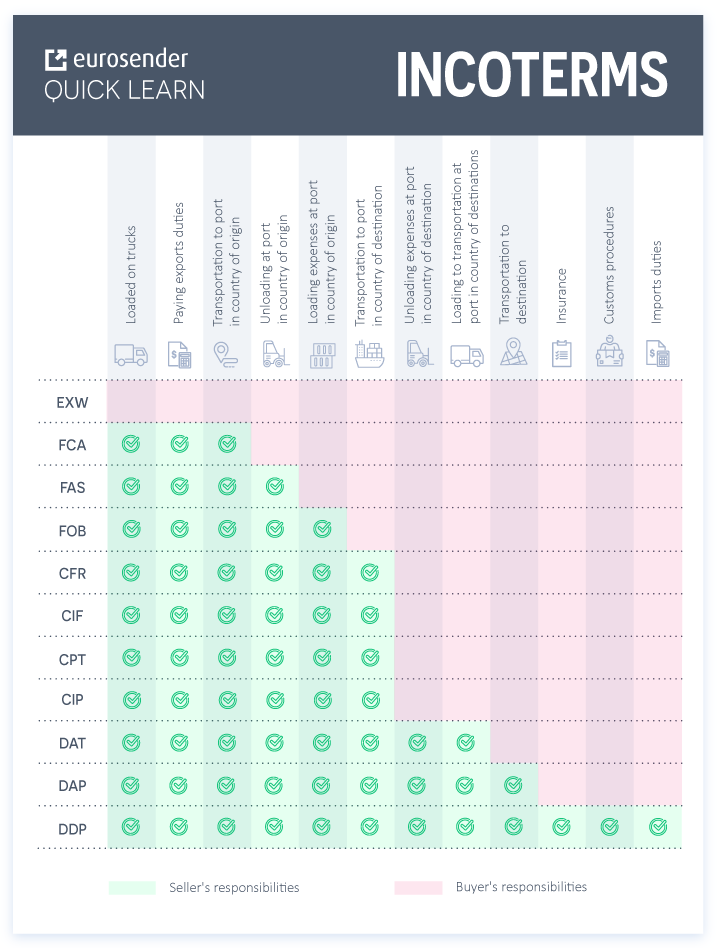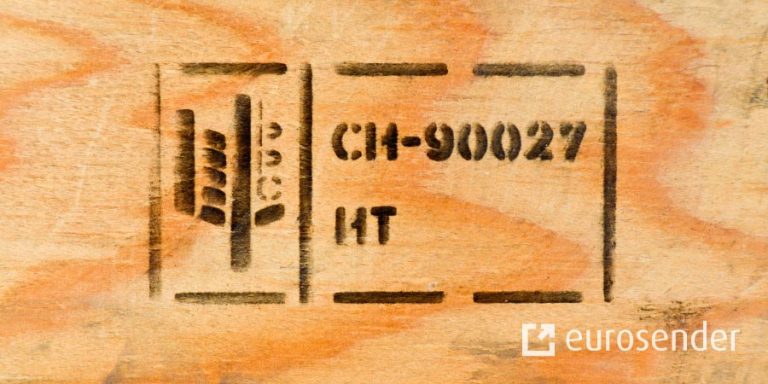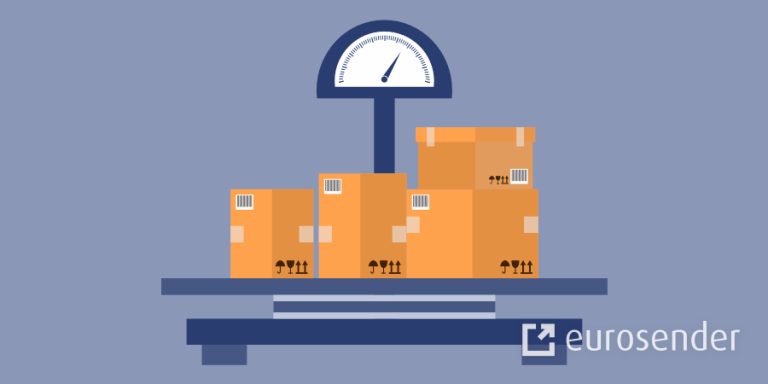Updated Incoterms 2020: What are They and Why are They Important?
Anyone who has experience in the field of international freight shipping is probably already familiar with the different types of incoterms. But what are the updated incoterms for shipping in 2021? What are they used for? We have prepared this article with up to date information about the new incoterms valid from 202o, as well as a handy introductory guide for those who are still unfamiliar with the concept.
Are you a business looking for the most reliable logistics solution?
Updated incoterms 2020
When were incoterms last updated? They were last updated in 2019. The ICC issued the list of updated Incoterms to be used from 202o onwards. When using Incoterms to organise a freight shipment you must always indicate that you are using them and which version. The newly updated incoterms, valid from 202o onwards, were implemented for every contract signed including and after January 1st, 2020.
Multimodal incoterms: for every type of transport
EXW: EX-WORKS: The seller is only responsible for making the goods available at the designated location (normally the seller’s warehouse or depot) properly packed. It is the buyer’s responsibility to clear the goods for export and arranging the pickup and transport from that moment on. The seller may also need to provide assistance during the clearance processes.
FCA: FREE CARRIER: The seller is responsible for making the goods available at their own premises, already cleared for export, and loading the goods on the chosen means of transport. A variation of this term happens if the seller is responsible for making the goods available in a place other than its own premises. In this case, it is the importer’s responsibility to unload the goods and load them in their chosen carrier.
CPT: CARRIAGE PAID TO: the seller delivers the goods to the carrier and is responsible for paying the freight charges. The seller’s responsibility ends when the goods are passed on to the freight forwarder and from that moment on the buyer assumes all the risks.
CIP: CARRIAGE AND INSURANCE PAID TO (x): The seller delivers the goods to a carrier and is responsible for paying the freight and insurance coverage (at least 110% of the goods).
DPU: DELIVERED PLACE UNLOADED: The goods are the seller’s responsibility until they are delivered to their address of the destination. It is the seller’s responsibility to unload them. After that moment the buyer is responsible for them. Before the new incoterms 2020 were published this was known as DAT (DELIVERED AT TERMINAL)
DAP: DELIVERED AT PLACE: The seller is responsible for the goods until after they are unloaded at the place of delivery. I.e. it is the seller’s responsibility unloading the goods. In both cases, customs are paid by the buyer. The buyer is responsible for paying customs clearance or import duties, whereas the seller assumes all costs and risks until the load reaches the delivery location.
DDP: DELIVERED DUTY PAID: the seller delivers the goods to the buyer, ready for unloading, with all the customs, taxes and import duties paid. The buyer is solely responsible for unloading the goods upon arrival.
Incoterms used for sea/inland waterway transport:
FAS: FREE ALONGSIDE SHIP: the seller delivers the good, properly packed and cleared for export to the selected loading port and leaves them beside the selected vessel. The buyer is responsible for loading the goods.
FOB: FREE ON BOARD: the seller delivers the goods, properly packed and cleared for export to the port of export and loads them on to the selected vessel. From then on, the buyer is responsible for the cargo, freight costs, insurance and any other fees.
CFR: COST AND FREIGHT: the seller delivers the goods properly packaged and cleared for export and loads them on the selected vessel. Although the seller must pay for the carriage charges until the destination port (but not till the final delivery address), once the goods are loaded, they are the buyer’s responsibility.
CIF: COST INSURANCE AND FREIGHT: the seller delivers the goods safely and properly packaged to the vessel at the export port. The goods have been cleared for export and the seller pays for the freight transport to the destination port as well as for minimum insurance, however, the responsibility passes on to the buyer once the goods are loaded on the vessel. The seller is also responsible for issuing and passing on to the buyer the required documents for the shipment (including but not limited to: invoice, insurance and B/L).

Are you interested in international shipping services? Do you need a partner for transporting your goods? Eurosender helps every month thousands of businesses shipping their goods all over the world. Create your own logistics department on our platform and take your business to the next level.
What are Incoterms?
We have seen the Updated Incoterms for 2020, but what in fact is defined as an incoterm? Incoterms, short for International Commerce Terms, is a series of terms created by the International Chamber of Commerce to define:
- How will the cargo be picked up, when and where?
- The type of transportation.
- Who assumes the risks and costs of transport, including transportation costs, loading and unloading of the cargo and insurance.
- Who should pay for the import or export duties?
Even though the usage of Incoterms is not mandatory, they help to create a trade contract based on standardized rules, between sellers, buyers and freight forwarders in international shipments. They were created in 1936 and have been updated many times throughout the following years. Incoterms are generally updated every 10 years to accommodate the needs and features of the logistics industry, so it is important to keep up with the changes and make sure you are using the correct version. The latest update is called Incoterms 2020 and will be on full use from 2020 onwards.
What are the different types of Incoterms?
Incoterms are divided into two main groups: multimodal and sea freight/ inland waterway. Multimodal incoterms are used when writing a contract or agreement for rail, road or air cargo shipping. Sea freight/ inland waterway is reserved for the transportation of goods and cargo in vessels. Because the nature of water transport is sometimes different, there are some extra incoterms created specifically for that mode of transport.
Why were incoterms created and why are they important?
Incoterms were created to establish an international set of rules and regulations that would have the same purpose and meaning in every country. Even though one party could issue a contract for international trade without using incoterms, some terms can have a clear meaning in one country but mean something else in another. Furthermore, incoterms are not translated, so the risks of misunderstanding and translation errors are minimised.
How to use incoterms?
When preparing a shipment, you must always include incoterms. Both parties should agree beforehand on which Incoterms will be included and how to best establish the obligations and responsibilities of each.
We hope this overview on the newly updated 2020 incoterms will be helpful for you in your present of future freight shipping operations. We know that keeping up with the latest Incoterms is very important for many sellers and service providers and here, at Eurosender, we strive to keep up with the latest developments in the logistics industry.
Do you want to ship cargo internationally? Check what Eurosender can do for you!






